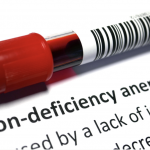Signs of Nutritional Deficiencies in Children

Nutritional deficiencies during childhood can have significant short term and long term impacts on a child’s health and development. Nutrients act as the building blocks that the body needs for physical growth and development. Children also need daily intake of key nutrients to maintain all the different kinds of tissues, organs and functions that need to occur day to day.
Nutritional deficiencies in young children can cause various symptoms.
1. Delayed growth and nutrient deficiencies
Insufficient nutrient intake during childhood can slow growth and development. This can lead to delays in milestones such as sitting, crawling, and walking, and delaying physical growth and maturation throughout infancy, childhood, and adolescence.
- Poor bone development: Poor intake of nutrients such as calcium, vitamin D, phosphorus, and magnesium can affect the formation of strong bones and skeletal growth, which can have a negative impact on bone development and increase the risk of fractures (Robinson et al., 2020).
- Delayed height and weight gain: When children do not consume enough calories or lack essential macronutrients (proteins, carbohydrates, and fats), it can hinder weight gain and cause delays with their height (Johnson & Smith, 2017). This can lead to children falling behind in growth percentiles and experiencing slower developmental progress.
- Delayed motor skills development: Adequate nutrition is necessary for proper muscle and nervous system development, which are crucial for achieving milestones like sitting, crawling, and walking (Brown & Wilson, 2016). Inadequate nutrient intake can contribute to delays in acquiring these motor skills.
- Cognitive and brain development: Essential nutrients such as omega-3 fatty acids, iron, zinc, choline, and various vitamins are vital for optimal brain development and cognitive functioning (Gomez-Pinilla, 2018). Insufficient intake of these nutrients during early childhood can hinder cognitive abilities, learning capacity, and overall brain development.
2. Poor energy and nutrient deficiencies
Children who are lacking essential nutrients can have low energy levels, and easily become tired and weak even with minimal activity. Adequate nutrition plays a vital role in providing the energy needed for daily activities and supporting overall health.
- Inadequate calorie intake: Calories from carbohydrates, proteins, and fats are the primary sources of energy for the body. When children do not consume enough calories, their energy levels can be significantly affected (Johnson & Smith, 2017). Insufficient calorie intake can result in low energy availability, making children feel fatigued and weak during play, or requiring more frequent breaks than their peers.
- Iron deficiency: Iron is essential for the production of haemoglobin, which carries oxygen around the body. When children lack iron, they can develop iron deficiency anaemia, which leads to fatigue and weakness (Brown & Wilson, 2016). Iron deficient children may experience reduced oxygen delivery to muscles, leading to decreased energy levels and stamina.
- Vitamin B12 deficiency: Vitamin B12 is crucial for red blood cell production and neurological function. Inadequate intake of vitamin B12, commonly found in animal-based foods, can lead to fatigue and weakness (Gomez-Pinilla, 2018). B12 deficiency can affect the body’s ability to produce red blood cells and transport oxygen efficiently.
- Micronutrient deficiencies: Deficiencies in all the different vitamins and minerals can also contribute to fatigue and weakness in children. For example, inadequate intake of vitamin D, magnesium, or potassium can cause muscles to fatigue easily and hurt, leading to low energy levels (Robinson et al., 2020). So if children are a little bit low in multiple vitamins and minerals, it all adds up!
3. Poor immune function and nutrient deficiencies
Low intake vitamin C, vitamin D, zinc, and iron can weaken the immune system. This can make children more prone to contracting infections, becoming sick more often, and make it harder (and longer) for them to recover.
- Vitamin C deficiency: Vitamin C supports immune function by enhancing the production and function of immune cells (Gupta et al., 2020). Poor dietary intake of vitamin C can compromise the immune system’s ability to defend the body against pathogens, making children more susceptible to infections and illnesses.
- Vitamin D deficiency: Vitamin D plays a crucial role in regulating immune responses and promoting immune cell function (Dror & Allen, 2018). Low vitamin D levels can impair the immune system’s ability to mount an effective defence against pathogens, increasing the risk of infections and prolonging recovery times.
- Zinc deficiency: Zinc is involved in numerous immune processes, including the development and function of immune cells and the production of antibodies (Gupta et al., 2020). Inadequate zinc intake can weaken the immune system, impairing its ability to fight infections.
- Iron deficiency: Iron supports the growth and activity of immune cells (Kumar et al., 2019). Insufficient iron intake can compromise the immune system’s ability to respond effectively to infections. These nutrients are also used for basic physical growth and development, so if there isn’t enough iron coming in each day to meet these needs there won’t be much left over for the immune system.
4. Dental issues and nutrient deficiencies
Insufficient intake of calcium, vitamin D, vitamin A, and phosphorus can lead to tooth decay, delayed tooth development, and weak tooth enamel.
- Calcium deficiency: Calcium is essential for strong teeth and bones. Inadequate calcium intake can weaken tooth structure and increase the risk of tooth decay (Alalwan et al., 2017). It may also affect proper tooth development, causing delays in tooth eruption.
- Vitamin D deficiency: Vitamin D plays a vital role in calcium absorption and tooth mineralization (Alalwan et al., 2017). Insufficient vitamin D intake can hinder the formation of tooth enamel, making teeth more prone to decay and erosion.
- Vitamin A deficiency: Vitamin A contributes to oral health by promoting the development and maintenance of healthy teeth and gums (Kumar et al., 2019). Inadequate vitamin A intake can compromise oral health, leading to weakened tooth enamel and an increased risk of dental issues.
- Phosphorus deficiency: Phosphorus is a mineral that works with calcium to build and maintain strong tooth enamel (Academy of Nutrition and Dietetics, 2020). Essentially, it helps to make the enamel hard, so low phosphorus intake can weaken tooth enamel and teeth more susceptible to decay.
5. Learning problems and nutrient deficiencies
Deficiencies in iron, iodine, B12, and omega-3 fatty acids, can impair brain development and cognitive function. This can result in learning difficulties, poor concentration, and decreased academic performance.
- Iron deficiency: Iron is essential for brain development and learning, so poor iron intake can lead to cognitive impairments. This can include decreased attention span, learning difficulties, and poor memory (Jáuregui-Lobera, 2014).
- Iodine deficiency: Iodine is crucial for the production of thyroid hormones, which are essential for brain development and cognitive function. Insufficient iodine intake during critical periods of brain growth, such as early childhood, can result in impaired intellectual and neurological development (Zimmermann, 2012).
- Omega-3 fatty acid deficiency: Omega-3 fatty acids, particularly docosahexaenoic acid (DHA), are important for brain health. Inadequate intake of omega-3 fatty acids (found in fatty fish, walnuts, and flaxseeds) is associated with decreased attention, memory problems, and learning difficulties (Gómez-Pinilla, 2008).
- Vitamin B12 deficiency: Vitamin B12 is involved in the production of myelin, a protective covering around nerve fibres in the brain. Inadequate intake or poor absorption of vitamin B12 can lead to neurological problems such as memory loss, poor concentration, and difficulties with reasoning and problem solving (Gómez-Pinilla, 2008).
6. Digestive problems and nutrient deficiencies
Inadequate fibre intake can lead to constipation, while deficiencies in B vitamins can contribute to digestive issues such as diarrhoea, loss of appetite, or make it difficult to actually absorb other nutrients.
- Fibre deficiency: Poor intake of dietary fibre can lead to constipation and digestive issues, as fibre adds bulk to the stool, promotes regular bowel movements, and helps to keep the whole digestive system healthy (Slavin, 2013).
- B vitamin deficiencies: Deficiencies in B vitamins, including thiamine (B1), riboflavin (B2), niacin (B3), and pyridoxine (B6), can contribute to digestive problems such as diarrhoea, loss of appetite, and impaired nutrient absorption (Dror & Allen, 2018). These vitamins play important roles in supporting many parts of the digestive system.
- Vitamin D deficiency: Insufficient vitamin D levels have been associated with digestive disorders, including inflammatory bowel disease (IBD), irritable bowel syndrome (IBS), and increased risk of colorectal cancer (Zhang et al., 2019). Vitamin D actually helps the immune system to function properly, and reduces inflammation in the gut.
- Zinc deficiency: Zinc is involved in many digestive processes, including enzyme function, immune response, and gut integrity. Deficiencies in zinc can contribute to digestive problems such as diarrhoea, malabsorption, and impact the immune system because we make around 80% of our immune cells in our gut! (Johnson & Smith 2017).
7. Skin, hair, and nail problems and nutrient deficiencies
Nutrient deficiencies may manifest as dryness, flaky skin, brittle hair, or weak nails. These issues can be caused (or worsened) by inadequate intake or poor absorption of vitamins, minerals, and fatty acids that play crucial roles in maintaining the health of the skin, hair, and nails.
- Vitamin C deficiency: Low Intake of vitamin C can lead to skin problems such as dryness, roughness, and poor wound healing. Vitamin C is essential for collagen formation, which supports the structure of the skin (Pullar et al., 2017).
- Biotin deficiency: Biotin, a B vitamin, helps to maintain healthy skin, hair, and nails. Deficiencies in biotin can result in brittle nails, hair loss, and skin rashes (Dror & Allen, 2018).
- Iron deficiency: Iron is essential for healthy hair growth and maintaining the strength of skin and nails. Insufficient iron levels can lead to hair loss and nails that break or split easily (Katta & Desai, 2014).
- Omega-3 fatty acid deficiency: Omega-3 fatty acids, particularly DHA, are crucial for skin health and hydration. Inadequate intake of omega-3 fatty acids can contribute to dry, flaky, and itchy skin (Katta & Desai, 2014).
8. Sleep issues and nutrient deficiencies
Poor intake of certain nutrients can make it more difficult for children to fall asleep, cause frequent overnight waking and even early morning rising (waking up before the sun and ready to start the day).
- Magnesium deficiency: Inadequate intake of magnesium can disrupt sleep patterns and contribute to difficulties falling asleep, staying asleep, or experiencing restless sleep (Hornyak et al., 2005).
- Vitamin B6 deficiency: Insufficient levels of vitamin B6 can affect the production of sleep-regulating hormones, such as serotonin and melatonin, leading to sleep disturbances (Dror & Allen, 2018).
- Vitamin B12 deficiency: Vitamin B12 is involved in the synthesis of neurotransmitters that regulate sleep and mood. Inadequate levels of vitamin B12 can cause sleep disturbances, including insomnia or restless sleep (Gomez-Pinilla, 2018).
- Iron deficiency: Iron is essential for the production of haemoglobin, which carries oxygen to the body’s tissues. Iron deficiency anaemia can lead to restless leg syndrome, a condition characterised by uncomfortable sensations in the legs and an irresistible urge to move them, often disrupting sleep (Jáuregui-Lobera, 2014).
- Vitamin D deficiency: Vitamin D plays a role in regulating the body’s internal clock, known as the circadian rhythm. Disruptions in the circadian rhythm can affect sleep patterns and sleep quality (Dror & Allen, 2018).
Physical signs of nutritional deficiencies in children
- Slow growth and development compared to children of a similar age
- ‘Falling off’ growth charts
- Pale skin, lips and nail beds.
- Skin conditions such as eczema
- Brittle hair and nails
- Dental problems
- Muscle weakness or poor muscle tone
- Fatigue and low energy levels
- Irritability
- Poor appetite
- Recurring infections
- Frequent illnesses
- Long duration if illnesses
- Slow wound healing
What to do about nutritional deficiencies in children
It’s important to note that these symptoms can be caused by lots of different things. If you have any concerns, check in with a children’s health naturopath finding the underlying cause of nutritional deficiencies and appropriate treatment options. Optimal nutrition is essential for healthy growth throughout the different stages of childhood.
References
Academy of Nutrition and Dietetics. (2020). “Nutrition Care Manual: Oral Health Nutrition.” Retrieved from https://www.nutritioncaremanual.org/.
Alalwan, H. A., Ibrahim, A. M., & Al-Talib, H. S. (2017). Assessment of the Calcium and Vitamin D Intake by Female Dental Students in Riyadh Colleges. Journal of Clinical and Experimental Dentistry, 9(4), e483-e487.
Brown, L., & Wilson, D. (2016). Nutrition Through the Life Cycle (6th ed.). Cengage Learning.
Dror, D. K., & Allen, L. H. (2018). Overview of Nutrients in Health and Disease. In L. H.
Gomez-Pinilla, F. (2018). Brain Foods: The Effects of Nutrients on Brain Function. Nature Reviews Neuroscience, 9(7), 568-578.
Gupta, S., Read, S. A., Shackel, N. A., & Hebbard, L. (2020). The Role of Micronutrients in the Immune Response to Viral Infections. Nutrients, 12(9), 28.
Hornyak, M., Voderholzer, U., Hohagen, F., Berger, M., & Riemann, D. (2005). Magnesium therapy for periodic leg movements-related insomnia and restless legs syndrome: An open pilot study. Sleep, 28(11), 1391-1394.
Jáuregui-Lobera, I. (2014). Iron deficiency and cognitive functions. Neuropsychiatric Disease and Treatment, 10, 2087-2095.
Johnson, R. K., & Smith, J. L. (2017). Introduction to Nutrition (3rd ed.). Jones & Bartlett Learning.
Katta, R., & Desai, S. P. (2014). Diet and dermatology: The role of dietary intervention in skin disease. Journal of Clinical and Aesthetic Dermatology, 7(7), 46-51.
Kumar, V., Abbas, A. K., Aster, J. C., & Robbins, S. L. (2019). Robbins Basic Pathology (10th ed.). Elsevier.
Pullar, J. M., Carr, A. C., & Vissers, M. C. (2017). The roles of vitamin C in skin health. Nutrients, 9(8), 866.
Robinson, C., Regan, A., & Marriott, L. (2020). Nutrition through the Life Course. In Oxford Handbook of Nutrition and Dietetics (3rd ed., pp. 1-40). Oxford University Press.
Slavin, J. (2013). Fiber and prebiotics: Mechanisms and health benefits. Nutrients, 5(4), 1417-1435.
Zhang, Y., Xiang, Y., Wang, Z., Cai, L., & Xiao, Q. (2019). The association between vitamin D and inflammatory bowel disease: A meta-analysis. Medicine, 98(49), e18178.
Zimmermann, M. B. (2012). The effects of iodine deficiency in pregnancy and infancy. Paediatric and Perinatal Epidemiology, 26(Suppl 1), 108-117.






